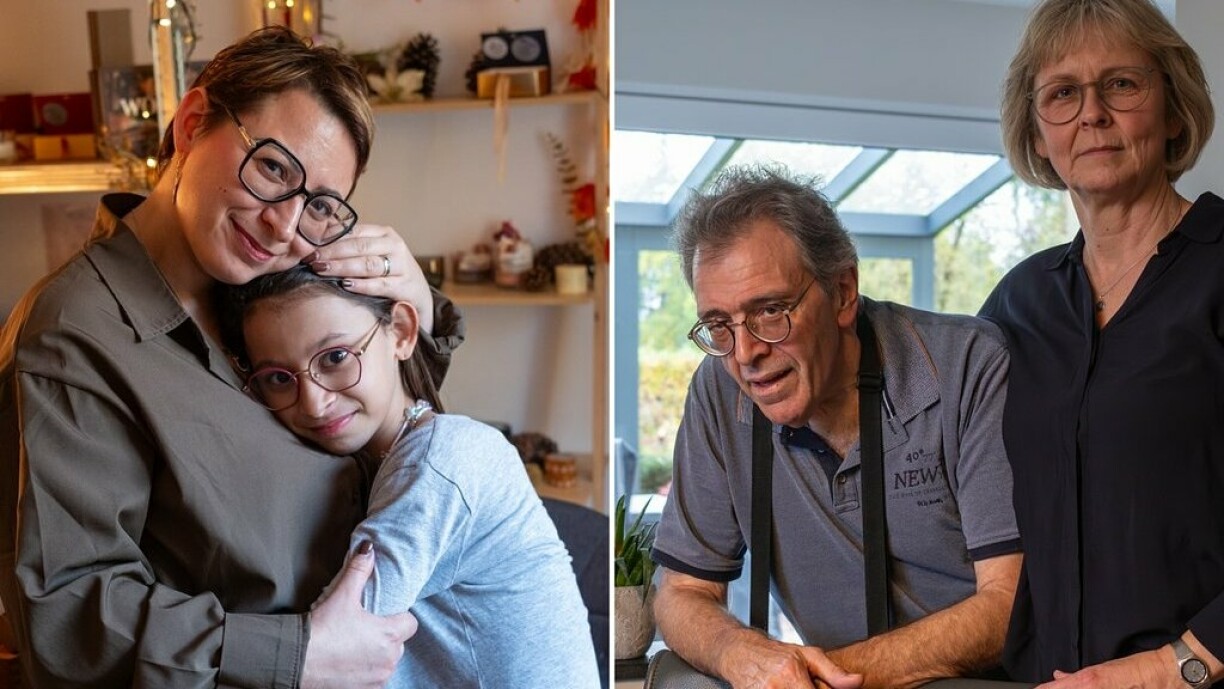
When you meet Myriam D’Hu, she radiates energy. In her small workshop, she calmly creates handmade candles. Yet behind this serene precision lies a battle that began five years ago: at just 30, she was diagnosed with Parkinson’s disease.
“It’s not common to say you have Parkinson’s at 35,” she explains. “People think it’s an illness for older people, but that’s not always the case.”
Her first symptoms were trembling on the right side of her body, fatigue, and sleep problems. Over time, these challenges began to affect her daily life. She lost her job and struggled to keep up with her children, now aged 12 and 10.
“It’s not easy to tell your children, ‘I can’t today because I’m tired, or because my body is telling me to stop,’” Myriam shares. “But I want them to see that I’m fighting, especially for them.”
To regain control over her symptoms, Dr. Rejko Krüger, coordinator of the National Center for Parkinson’s Research in Luxembourg (NCER-PD), recommended brain stimulation, which she underwent earlier this year.
The procedure, developed over 30 years ago, involves implanting electrodes in specific areas of the brain, connected to a device in the chest. It continuously sends electrical impulses, reducing tremors and improving motor function.
While Myriam still cannot work or drive, her quality of life has improved dramatically.
“The stimulator has allowed me to live again, to stop constantly thinking about the disease,” she says. “Before, I was always shaking. Sometimes I still feel restricted, but it has really changed my life.”
Before her diagnosis, Myriam worked for a large retail chain in Luxembourg, handling agricultural products. She believes that contact with pesticides may have contributed to her illness.
“There are many farmers and workers exposed to pesticides who develop Parkinson’s,” she says. “I don’t fit the typical profile for this disease, so I think that could be a reason.”
Since 2012, Parkinson’s has been officially recognised in France as an occupational disease for farmers, a step Germany later followed.
“Studies have shown that exposure to certain pesticides – for example, in vineyards – can increase the risk of Parkinson’s if proper safety measures are not taken,” explains Dr. Rejko Krüger.
“More recently, another chemical, trichloroethylene, used in industrial cleaning, has been linked to a higher risk of Parkinson’s. It is now banned in Europe but was still used around 15 years ago.”
The neurologist emphasises that Parkinson’s has multiple causes, many still unknown.
“We know that age increases the risk of Parkinson’s, but for most patients, it’s a combination of environmental factors and genetic predisposition,” Dr. Krüger says.
Around 4,000 people in Luxembourg currently live with Parkinson’s disease, a figure expected to roughly double in the coming years due to an aging population and longer life expectancy.
Symptoms can appear at any age and vary widely, including a reduced sense of smell, constipation, sleep disturbances, or shaky handwriting.
“And there isn’t just one form of Parkinson’s,” explains Dr. Rejko Krüger. “Some patients mainly experience tremors, others become stiffer or slower. These are different subtypes, and in the future, we will treat them differently.”
Researchers at the Luxembourg Centre for Systems Biomedicine (LCSB) are already working toward this goal. Using advanced stem cell technology, they can transform a patient’s skin cells into neurons, a complex six-week process. This allows scientists to study Parkinson’s at the cellular level and develop personalized treatments for the disease’s various forms.
Due to the complexity of Parkinson’s disease, Luxembourg launched ParkinsonNet in 2018, a national network of 140 specialists providing multidisciplinary care to patients from diagnosis through the end of life.
The network connects physiotherapists, neurologists, psychologists, occupational therapists, speech therapists, nutrition counselors, and specialised nurses, all working together to improve patients’ quality of life.
“If someone asked me which country is the best to live with Parkinson’s, I would say Luxembourg without hesitation,” says Mariella Graziano, physiotherapist and co-founder of ParkinsonNet.
Over the past 10 years, the NCER-PD has brought together Luxembourg’s leading institutions and has developed into a recognised center for Parkinson’s research.
Looking ahead, Dr. Rejko Krüger anticipates “many small but significant breakthroughs” over the next five years, including a reliable diagnostic test similar to Alzheimer’s biomarkers, and targeted antibody therapies aimed at slowing disease progression.
“We may not have a cure yet,” he adds, “but we already have the means to significantly improve the quality of life for patients.”
For 62-year-old Fernand Meyers, his diagnosis 11 years ago meant stiffness and an abrupt loss of mobility. Now, a new pump therapy has helped to restore some flexibility and independence.
The tiny portable device can administer medication on a continuous basis through a tube under the skin. Pump treatment has existed since the 1980s, but new technology rendering the treatment portable has only been developed in recent years. Fernand has used the device for several months.
“Before, I had to take pills every two hours,” he says. “Now I get it all at once, and it has given me so much freedom.”
Fernand’s symptoms may still be present, but they are less severe than before. The pump device means Fernand has been able to travel abroad with his family again - something which has been impossible for him for six years.
“It was wonderful. I thought I’d never be able to do it again. I was worried I’d ruin the holiday, but everything was fine,” he laughs. “We’ve booked to go away again next year.”